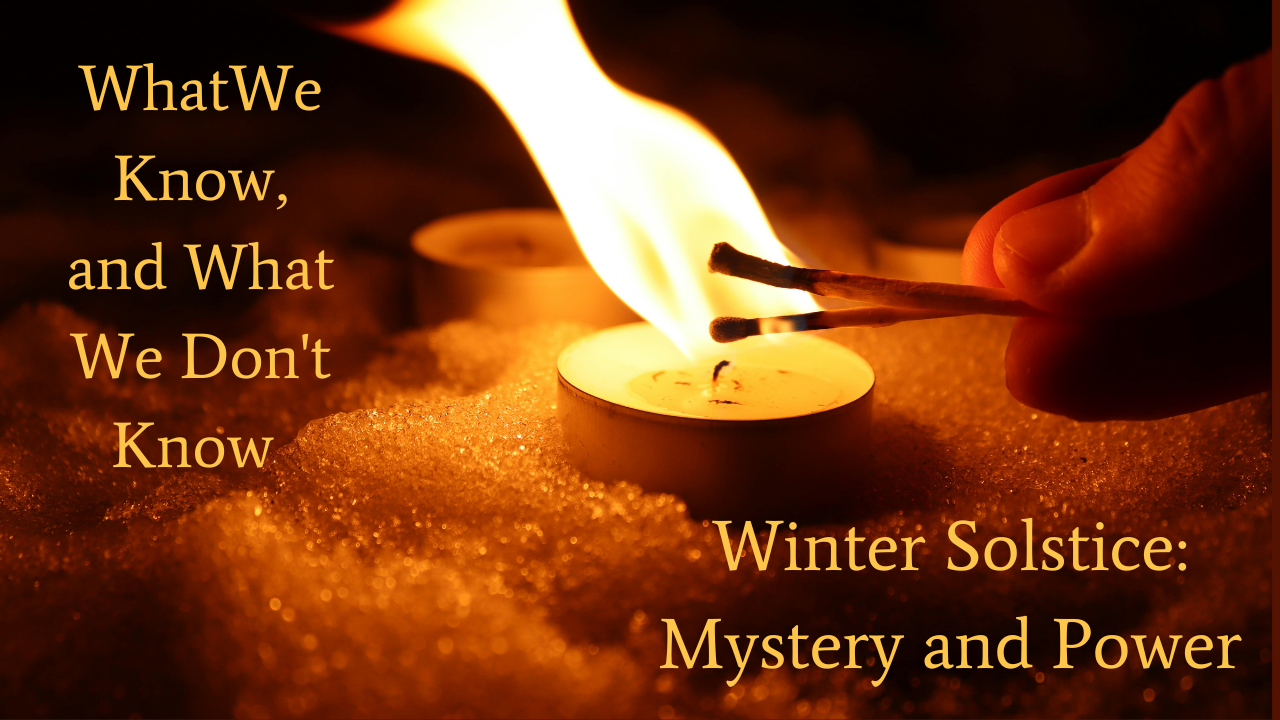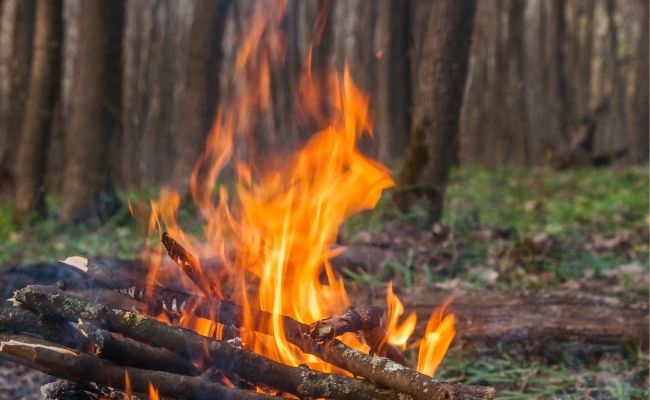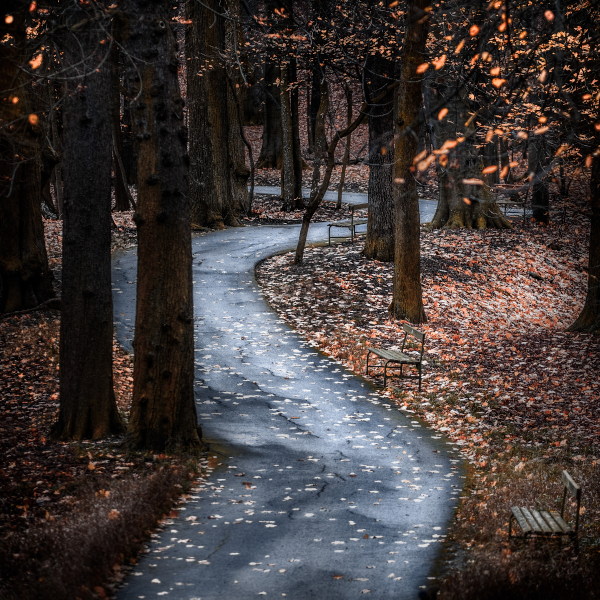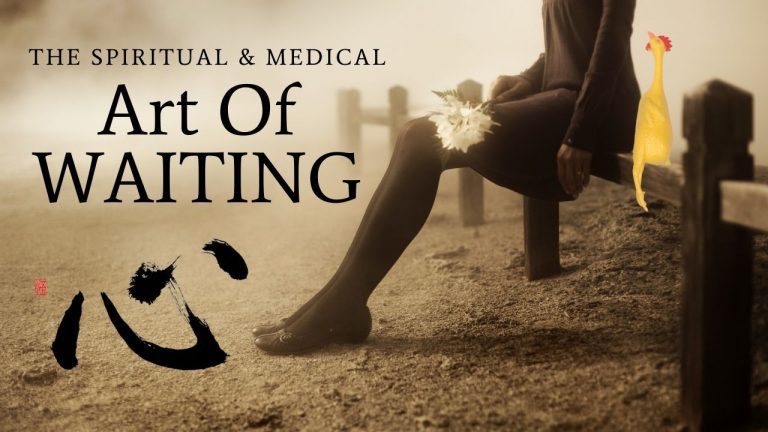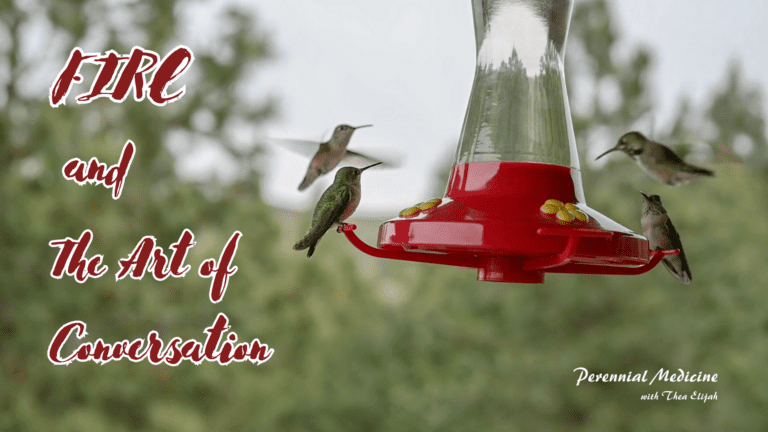What We Know, and What We Don’t Know
There are some folks who are not comfortable with the unknown. Oh, no thank you, not comfortable with the unknown. They may be so uncomfortable with the unknown that they just don’t even acknowledge it.
There was a period of time it–blew my mind–when–you know how sometimes there’s a phrase that you’ve never heard before, and then suddenly everybody’s saying it? There was this time was a few years ago, when it seemed like everywhere I went, people were saying something or other about why something was a certain way, and then they’d say, “That’s the only explanation I can think of!” As though that made it true!
So that’s what makes something true? Is that it is the only explanation you can think of? Oh, my gosh. Suddenly, it seemed like everywhere I went, people were saying, “That’s the only explanation I can think of…” Oh, ah, serious deficit of mystery. Serious discomfort with the unknown. Real difficulty saying, “I don’t know.”
We may need practice with that. We may need practice, and we can get practice just mentioning, “Here’s something I don’t know. I hold it as a question; I don’t know how things are gonna go.” For my son who was having health issues, it could go this way or that way; it could go a lot of different ways, and I don’t know. We can practice not knowing as a way of being in the ocean, and not drowning. I just don’t know; it’s not a death sentence. I don’t know.
If the unknown is really difficult for you, you might start with small things like “I don’t know how many clean sheets there are in the closet for my treatment table,” and just kind of hang with it. Then start upping it to more and more significant things, to practice being able to not know without loss of heart. Not knowing in loss of heart usually looks like either panic, or despair, or something that feels kind of like falling down an elevator shaft without a bottom. We can practice “I don’t know” with heart. I don’t know.
There are also those of us for whom the prevalence is in the other direction, who are actually really good at being very in touch with what they don’t know–and who drown there because of some difficulty with being able to stand in what they do know. Not dogma. When I say that they know, I mean something that has a lived verification to it. I don’t mean conviction: “I believe that___________” fill in the blank.
That’s not what I mean. I mean even such simple things as: this is a rubber chicken–and I’ll use it if I have to. I’m just kidding. This is a rubber chicken. I know it’s a rubber chicken. I’m positive. I don’t need conviction to know that this is a rubber chicken.
I use this as an example of how it feels to actually know something. What I’m getting at is feeling the places in your body, and the actual feeling, of what it feels like to be certain of something.
I have sometimes worked with clients who had very strong Kidney yang deficiency, and a kind of wavering weak-in-the-knees doubt about everything. Everything! I would open the treatment room door, and I would say, “Is the treatment room door open or shut?” and they’d say, “Well…” and they’d stand there for a while. I’d ask again, “Is the treatment room door open or shut?” They would struggle to get to the point where they could say, “That door is open.” I’d stay with it until they could say “That door is open” with confidence. Then I’d have them shut it and let me know, “Is it shut?”
We would work with this so that they could feel in their body: When you know something, when you really know it, how does your chest feel? How does your solar plexus feel? What’s your pelvic stance? How are your legs, your feet; what does the back of your head feel like, and all the way down your spine, when you are dead certain:
I am wearing clothes
I am indoors
The treatment room door is open
as a differentiation from convictions that are mental.
This is powerful and necessary because in many cases, especially when we are swimming in a sea of disinformation, we can lose our certainty detector. We can get into a state where we are really just not sure of anything–and this is very debilitating, physically, medically, as well as psychologically and spiritually.
We may need–and some people needed more than others; some people have so much certainty, it’s fantastic. They don’t need any more. They need more unknown–but some people really need, as a an essential nutrient, more of the feeling in their body of “I know this is a rubber chicken. I know this is a this is a cough drop. I know that my phone is over there,” and to walk around feeling what it feels like to walk around in your knowing: “I know these things. I don’t know everything. I do know these things,” for the biology of it–for what it does for our health to give equal time to what we know, and what we don’t know.
Would you like to hear more? Check out the full transmission with the 5 PDA point video and transcript, Winter Solstice: Mystery and Power.
To join the discussion, find us on my Perennial Medicine discussion listserv (all are welcome)
